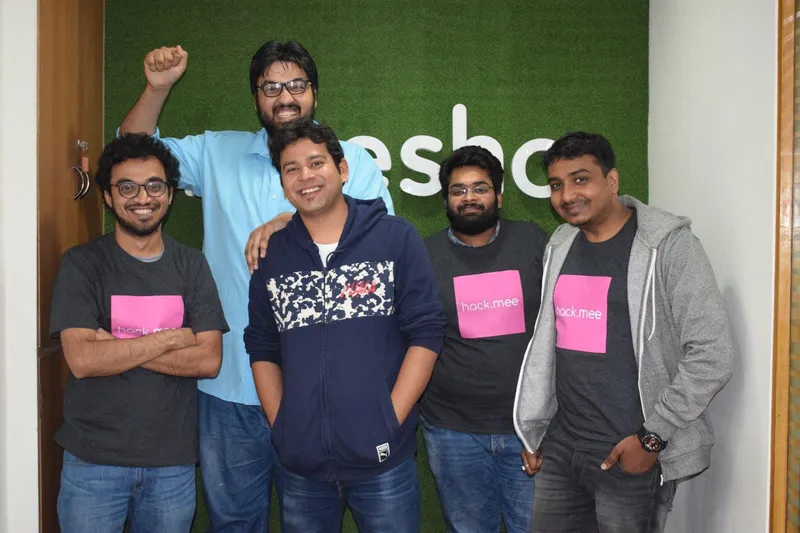Meet the 5 social commerce startups empowering micro-entrepreneurs
Social commerce is at an inflection point in India, and these five social commerce startups are working to make the most of the opportunity.
A report by India Cellular & Electronics Association (ICEA) and KPMG reveals that approximately 840 million people will have internet access and almost 60 percent of the Indian population will own phones, setting the stage for a momentous leap in social media users by 2022.
It is estimated that India's ecommerce market will swell to $220 billion by 2025, with social commerce poised to become a $100 billion market.
There has been a surge of homegrown social commerce startups, on the back of use of social media platforms such as Facebook, Instagram, and Snapchat. With a growing customer base and expanding interest from investors, social commerce is poised to be the next big thing in Indian ecommerce.
Social, or live, commerce is at an inflection point in India, and startups operating in the space raised more than $1 billion in funding in 2021, a RedSeer report said.
YourStory rounds up the top five startups in the social commerce space:
Meesho
Founded in 2015 by IIT Delhi graduates Vidit Aatrey and Sanjeev Barnwal, Bangalore-based is a mobile-first ecommerce platform. The premier social commerce startup is operational in around 4,800 cities and towns in India, and has over a lakh registered providers and services in nearly 26,000 postal codes.

The Meesho Team
Meesho currently employees around 900+ team members and caters to 20 million resellers. The startup is backed by investors like Facebook, Venture Highway, Shunwei Capital, Prosus Ventures, and SoftBank, raising up to $415 million.
Coutloot
Founded by Jasmeet Thind and Mahima Kaul in 2016, is a Mumbai-based offline-to-online (O2O) social commerce startup.

The startup helps shopkeepers and street merchants sell online by automatically cataloguing their offline inventory, providing logistics, payment, and reconciliation support.
It provides business opportunities to over 5,00,000 offline retailers, mom-and-pop stores, home sellers, and street hawkers, and has over 20 million listings. It has more than 10 million downloads and 6.5 lakh registered sellers.
In an earlier conversation with YourStory, Jasmeet Thind, Co-founder of CoutLoot, said "We are here to humanise ecommerce in India that is still just 10 percent of the total retail and FMCG sector. Most commerce still happens offline for various reasons, including low trust and bargaining.
"Coutloot helps sellers and buyers with that power to decide the prices after a bargain on the chat. We are trying to create Coutloot as India's Taobao, which is one of the most fascinating the ecommerce success stories around the world."
In September 2021, the platform raised $8 million in a funding round from Ameba Capital, 9Unicorns, Astrac Ventures, and others, and aims to close another funding round worth $25 million soon.
DealShare
Jaipur-based social commerce startup , founded by Vineet Rao, Sourjyendu Medda, Sankar Bora, and Rajat Shikhar in 2018, caters to the 500 million new-to-internet and value-seeking users.
In just three years, the startup has scaled to over 10 million customers and more than 100 cities across 10 states. Recently, it raised $45 million in a Series E round from ADIA.

Founding team of DealShare
In an earlier conversation with YourStory, while Sharing DealShare's growth plans, Co-founder and Chief Business Officer Sourjyendu Medda said, “We are in touching distance of hitting $1 billion of gross revenue run rate in just three years. We are likely to hit $3 billion of gross revenue run rate in the next 12 months.
“We will be tripling our geographical presence, investing heavily in acquiring top-notch tech talent, and building world-class supply chain infrastructure to aid this growth, along with the continued focus on capital efficiency and path to profitability. We are targeting operational profitability by the end of 2022.”
BulBul
Founded by Ajit Jain and Sachin Bhatia, is a Gurgaon-based video commerce startup. The platform uses video streaming and interactive chat to assist users and help them find new products.
The startup has registered four lakh transactions with around 15 million views on its short-form dealer videos. The application permits its vendors to showcase their items during a live stream. Most of the product content is created by women across the country for local context and to build trust.
CityMall
Founded by Angad Kikla and Naisheel Verdhan in 2019, provides income opportunities to a network of micro-entrepreneurs.
The startup allows them to open virtual stores and aggregate demand. It has additionally extended items available in its portfolio from food and FMCG items into design, electronics, electrical appliances, beauty care products, and so forth.

CityMall founders: Angad Kikla (left) and Naisheel Verdhan
The target audience is in Tier 2 and Tier 3 cities, towns, and villages.
Angad Kikla said in an earlier statement, “The internet has transformed the lives of consumers in large metro cities. However, for low to mid-income users in small towns, the use of the internet is limited to content and social. We are building CityMall with a vision to transform their experience with the internet - by providing them with access to earning opportunities and affordable products and services.”
“Our vision is to build a decentralised ecommerce ecosystem for the next 200-300 million internet users living in small towns and villages,” Angad said.
Edited by Teja Lele









